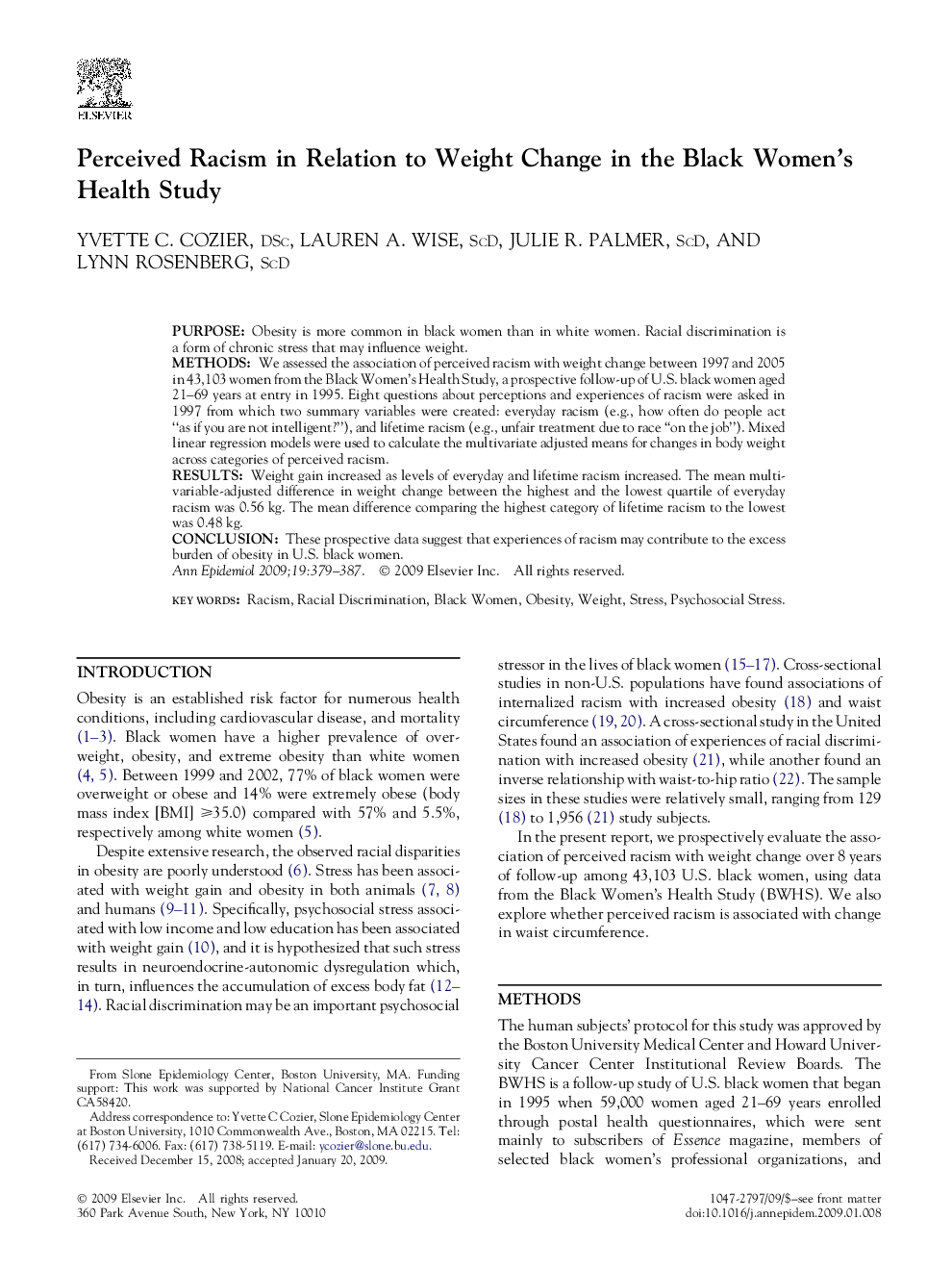| Article ID | Journal | Published Year | Pages | File Type |
|---|---|---|---|---|
| 3445120 | Annals of Epidemiology | 2009 | 9 Pages |
PurposeObesity is more common in black women than in white women. Racial discrimination is a form of chronic stress that may influence weight.MethodsWe assessed the association of perceived racism with weight change between 1997 and 2005 in 43,103 women from the Black Women's Health Study, a prospective follow-up of U.S. black women aged 21–69 years at entry in 1995. Eight questions about perceptions and experiences of racism were asked in 1997 from which two summary variables were created: everyday racism (e.g., how often do people act “as if you are not intelligent?”), and lifetime racism (e.g., unfair treatment due to race “on the job”). Mixed linear regression models were used to calculate the multivariate adjusted means for changes in body weight across categories of perceived racism.ResultsWeight gain increased as levels of everyday and lifetime racism increased. The mean multivariable-adjusted difference in weight change between the highest and the lowest quartile of everyday racism was 0.56 kg. The mean difference comparing the highest category of lifetime racism to the lowest was 0.48 kg.ConclusionThese prospective data suggest that experiences of racism may contribute to the excess burden of obesity in U.S. black women.
